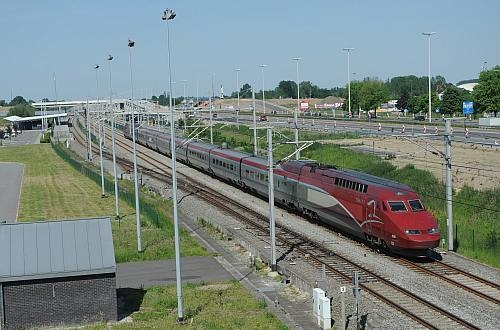The objective is to enable Thalys to react more swiftly should competitors emerge on the high-speed corridor linking Paris, Brussels, Amsterdam, Cologne, and Düsseldorf, where Thalys currently operates.
Thalys was set up in 1995 by SNCF, SNCB, Netherlands Railways (NS) and German Rail (DB), and the first services were launched in 1996. NS has only been a partner in Thalys and will continue in this role, while DB, which has a 10% stake in Thalys, announced its decision to pull out earlier this year.
In 2015, SNCF will have a 60% shareholding in the new Thalys company compared with 62% currently, while SNCB's stake will increase from 28% to 40%. Four of the seven members of the new Thalys board will come from SNCF including the CEO, while SNCB will have the remaining three members.
DB already competes with Thalys between Cologne and Brussels and is in the process of acquiring a fleet of Velaro-D trains from Siemens to expand its international services, although their approval has been seriously delayed by Germany's Federal Railway Authority (EBA). Italy's Trenitalia is also believed to have been looking at the route.
"This is a great opportunity to strengthen the historic partnership between our two companies and further develop high-speed rail in northern Europe," said Mr Guillaume Pepy, SNCF chairman, and Mr Marc Descheemaecker, CEO of SNCB, in a joint statement. "It will give Thalys the means to offer an increasingly attractive and efficient service to its customers and expand its business."
Thalys achieved an 8.4% increase in turnover last year to €470m, while passenger journeys rose by 3.1% to 6.6 million.

